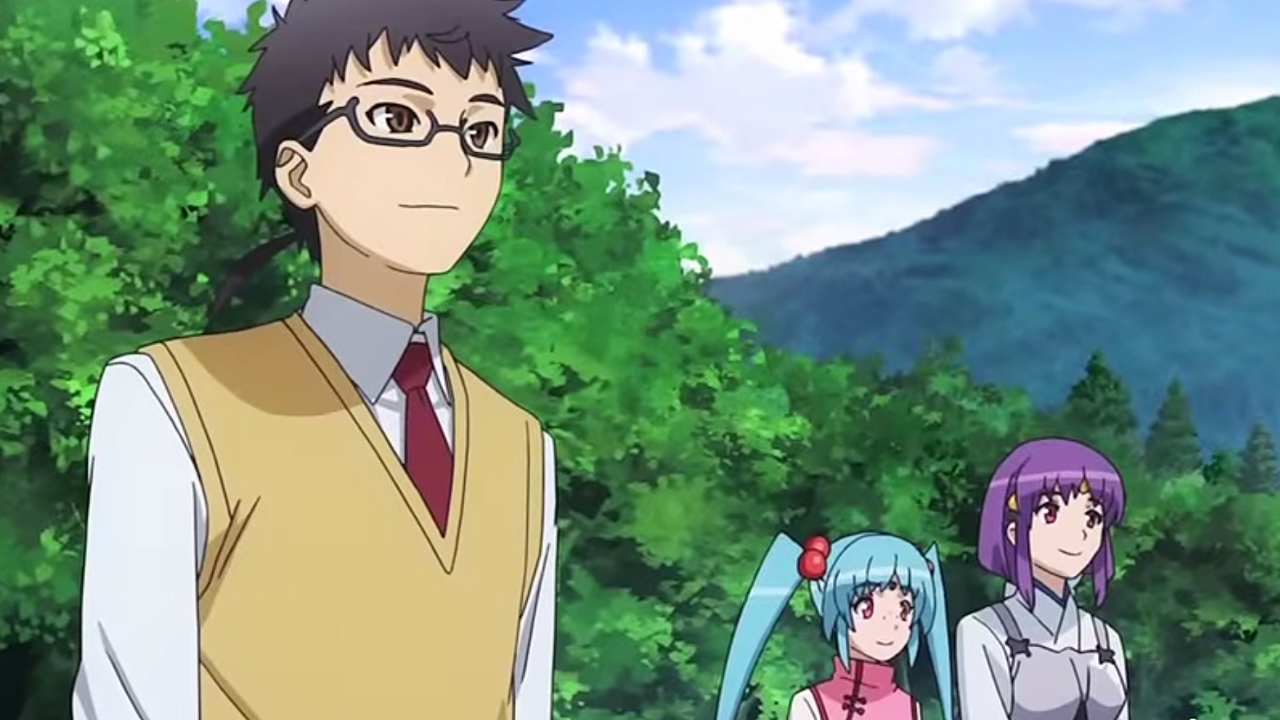
If ever there were modern-day testament to my former professor’s adage of a particular work being “art masquerading as popular culture,” in the anime world it would surely be Ai Tenchi Muyo! (2014). The latest installment in the multifaceted Tenchi Muyo! franchise, Ai essentially resurrects what would otherwise be a dying (albeit classic and fondly remembered) series for a new generation while catering to old-school fans.
Directed by veteran auteur Hiroshi Negishi—who has been intimately involved with previous incarnations such as the television adaptation Tenchi Universe (1995) and the feature-length filmsTenchi Muyo! In Love (1996) and Tenchi Muyo! In Love 2: Haruka naru omoi (1999)—the fifty episode miniseries goes above and beyond its pragmatic function of promoting tourism for its native Takahashi and Okayama Prefecture (the real-life backdrop of the original OVA). It also accomplishes more than merely revitalizing a nineties staple for the current anime climate. Though encased in a veneer of conventional tropes and modern aesthetics, Ai is truer to its source material than any animated version since 1999. The original cast returns nearly in its entirety, and blends well with up-and-coming voice talent as venerable characters and new faces alike eloquently cohabit the screen. The show’s writing is remarkably keen and efficient, making full use of each episode’s four-minute storytelling window. Despite its unorthodox format, large ensemble of new characters, and its inherited, tarnished reputation brought on by its predecessors—the commercially ill-fated Tenchi Muyo! GXP (2002) and the financial debacle that was the third installment of Tenchi Muyo! Ryo-Ohki (2003-2005)—Ai Tenchi Muyo! has brought its forbearer back from the brink. It has renewed interest among viewers and proven that Tenchi Muyo! has marketability potential over twenty years since its heyday.
Available on Blu-ray shortly after the televised airing of its final episode, it will be interesting to find out not only how much remaining interest for Tenchi Muyo! as a whole resides in its home nation, but also abroad internationally, particularly in the West (as is the norm nowadays, it has already been subtitled by fans). As patrons speculatively await additional content (follow-up television series, manga, or even another movie), it would seem Ai Tenchi Muyo! continues the tradition of blissful irony insofar as its desirability parallels the time-honored juxtaposition of the series’ title (commonly translated as No Need for Tenchi!) and its subject matter of an irresistible plot device of a protagonist.

[…] Re-posted with permission here. […]